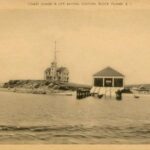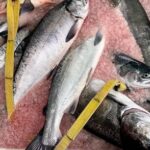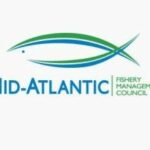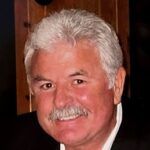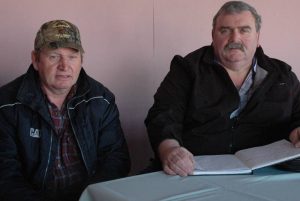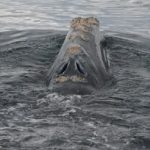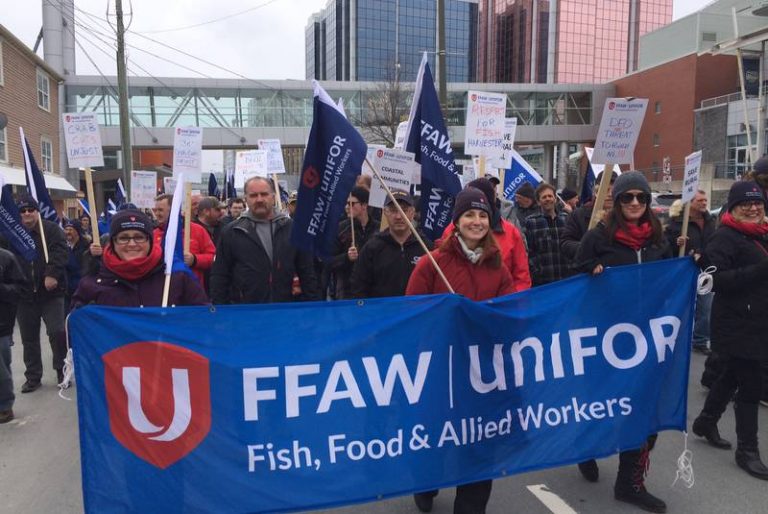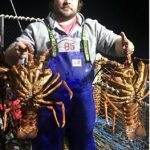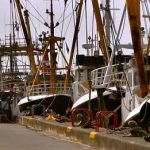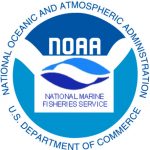Tag Archives: marine-science
Your View: Fishery council must reject unreliable assessments – By Richard Canastra – southcoasttoday
I nearly always attend New England Fishery Management Council meetings in person, but last month, I was unable to attend the meeting in Newport, and instead listened to the proceedings online. I found that listening, and not physically being there, gives you a different perspective on a meeting. You hear more intently. There are fewer distractions. Examples seem clearer. Patterns emerge. There are some predictable patterns in life. When there is an accident, at the end of the traffic jam you find a police officer. When you go to a restaurant, at the end of dinner the bill comes. And when you attend a fisheries management council meeting that is dealing with a crisis, there is usually a bad stock assessment.
Bad stock assessments have become as predictable as the sunrise. Read More
Share and Share Alike
As a citizen advocate of the fishing industry, I have no confidence in NOAA stock assessments.
I spend a lot of time reviewing material, attempting to convey the results to as many people possible.
These listening sessions allow, as Mr Canastra stated, patterns to emerge.
The patter of Bill Karp, and Sam Rauch deviates not from the typical bureaucratic structure, much to my disappointment after listening to them from various venues, and reading a lot of information.
The revelations of the Georges Bank Yellowtail Flounder Working Group Meeting May 23, 2012, are the foundation of my opinion to condemn the stock assessments as a tool for fishery management, while enforcing Mr Canastras belief that the proper equipment is not being utilized to sample yellow tail flounder abundance.
As stated, patterns have emerged. The pattern of over looking details that have detrimental affects on stock assessments and confidence in them.
At the The New England Fishery Management Council’s three-day meeting in Plymouth Ma on 9/25/2012, a major detail confirmed the retrospective patter of no confidence in stock assessments conducted by NOAA.
During the 54th Stock Assessment Workshop (SAW)/Stock Assessment Review Committee (SARC) Meetings, a fisherman asked a question that received a hollow shrug of the shoulders answer that I find alarming, and telling that these assessments are substandard and incomplete.
The question was, “why is there no mention of herring as a predator species” in the ground fish assessment?
The answer. ” The SSC was, ah, not presented, ah, ah herring as a, ah, predator species….”
Yes. A Retrospective Pattern of the science used to mismanage this industry is established.
No confidence.
Your View: UMD administration needs to explain changes at SMAST – southcoasttoday.com
Prior to that event and the arrival of Dr. Brian Rothschild and his associates, the domestic fishing industry was subjected to the science used for assessing fishing stock sizes and their use in fishing conservation plans. The law called for the fishery management councils to use the best available scientific information, and in the days before SMAST that meant that whatever the National Marine Fisheries determined to be the proper approach was indeed the gospel. Fishermen and the industry generally were put through management measures that not only didn’t make sense but ended up killing millions of pounds of seafood product, fish and scallops, subjected vessels to huge fines and loss of vessels, and resulted in a highly confrontational relationship between industry and government. Read More
Rep. Antonio F.D. Cabral-Fishing industry needs research money as well as disaster relief
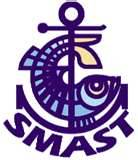 The elections may be over, but the current Congress still has work to do…..We need reliable, independent science. And Massachusetts is best equipped to provide it….That’s because there has not been adequate, sustained funding for independent research centers…..environment using scientific evidence that is, by its own scientists’ admission, often unspecific, unproven and unreliable. NOAA has been put in the position of acting not only as judge and jury, but as prosecution, defense and expert witness…..In particular, the School for Marine Science and Technology (SMAST) at UMass Dartmouth is uniquely suited to provide this research. SMAST has an ideal location as well as a history of fostering positive collaboration between all fishing stakeholders. SMAST can also boast a proven record of success in fishery research. In the 1990s the scallop industry was on the verge of collapse when SMAST pioneered new research on a very tight budget that proved the scallop population wasn’t devastated, http://www.southcoasttoday.com/apps/pbcs.dll/article?AID=/20121118/OPINION/211180303
The elections may be over, but the current Congress still has work to do…..We need reliable, independent science. And Massachusetts is best equipped to provide it….That’s because there has not been adequate, sustained funding for independent research centers…..environment using scientific evidence that is, by its own scientists’ admission, often unspecific, unproven and unreliable. NOAA has been put in the position of acting not only as judge and jury, but as prosecution, defense and expert witness…..In particular, the School for Marine Science and Technology (SMAST) at UMass Dartmouth is uniquely suited to provide this research. SMAST has an ideal location as well as a history of fostering positive collaboration between all fishing stakeholders. SMAST can also boast a proven record of success in fishery research. In the 1990s the scallop industry was on the verge of collapse when SMAST pioneered new research on a very tight budget that proved the scallop population wasn’t devastated, http://www.southcoasttoday.com/apps/pbcs.dll/article?AID=/20121118/OPINION/211180303
Climate change could be affected by changing phytoplankton – Mridul Thomas MSU
In the current issue of Science Express, Michigan State University researchers show that by the end of the 21st century, warmer oceans will cause populations of these marine microorganisms to thrive near the poles and may shrink in equatorial waters. Since phytoplankton play a key role in the food chain and the world’s cycles of carbon, nitrogen, phosphorous and other elements, a drastic drop could have measurable consequences.http://fis.com/fis/worldnews/worldnews.asp?l=e&ndb=1&id=56428
Chesapeake Bay Foundation Continually Misrepresents Status of Menhaden – using biased phrasing in their articles
In reference to menhaden, both articles uses the phrase “the most important fish in the sea,” which is frequently used without proper explanation. Originating from Rutgers University English Professor, Dr. H. Bruce Franklin’s book, The Most Important Fish in the Sea, the phrase stems from entirely qualitative judgements made by the author. There is no scientific evidence supporting the hyperbolic statement that any one species of fish is “most important,” and promulgating this idea represents only the authors’ opinion, rather than any scientific consensus.
Although the Epes article states that “The Chesapeake Bay Foundation is pushing for fair and reasonable limits to rebuild the menhaden population,” the organization does not provide a similar description of the status of the menhaden stock, using biased phrasing in their articles to make the species seem in worse condition than it actually is.

SMAST professor Brian Rothschild, and the SMAST Team are coming to the rescue! (There is a God!) It ain’t NOAA either.
http://www.youtube.com/watch?v=oHSkMwUa2i4
I’m willing to bet my sou’wester that the SMAST Team will get some real results that the industry can believe.
SMAST plans independent groundfish survey to assist groundfishermen By DON CUDDY
DARTMOUTH — Frustrated by doubts surrounding the accuracy of fish stock assessments conducted by NOAA and with the groundfish industry in crisis, UMass Dartmouth’s School for Marine Science and Technology plans to launch an independent survey of groundfish stocks. “(NOAA Fisheries) is saying they don’t have time to review the assessments that are on the table,” said SMAST professor Brian Rothschild. “But this is really high stakes and we need to do something before May 1.” The new fishing year, with cuts of 50-70 percent projected for key stocks, begins May 1. Such drastic cuts threaten to force many independent fishermen out of business.
http://www.southcoasttoday.com/apps/pbcs.dll/article?AID=/20121017/NEWS/210170334
Cape Cod’s fishermen fret over seals, dogfish and the future
Two areas, 35-miles south and 150-miles east of Chatham have been closed for cod and other groundfish but the National Marine Fisheries Service is contemplating re-opening to help fishermen because all fishermen are facing drastic cuts of 70 percent in cod and 73 percent in haddock on Georges Bank. But not all fishermen are enthused.
Then there’s this insight by someone who can’t be very smart.
Wholesaler Andy Baler of the Nantucket Fish Company noted that huge mid-water trawlers are catching tons of herring off shore while the National Marine Fisheries Service looks idly on. “Cod and haddock feed on local herring but they’re starving. That’s why you see fish so skinny,” he said. “The mid-water trawlers are going to suck every bit of bait out there. You have one management system for some fish and another management system that goes and kills all the fish they eat.” Bullard conceded the two plans are un-connected. NOAA takes a fish by fish approach. “This port is crushed. We’re living on a few dogfish,” Baler declared. “We need some help. Keep the herring here so we can fish the channel.”
Read more: Cape Cod’s fishermen fret over seals, dogfish and the future – – Harwich Oracle http://www.wickedlocal.com/brewster/newsnow/x1826353094/Cape-Cods-fishermen-fret-over-seals-dogfish-and-the-future#ixzz29O2eBrZ9
The relationship is this. The larvae of the bottom fish need to go to the surface of the ocean in order to obtain food – plankton – and light. While they go up, they become a feast for the pelagics. When those larvae that survive become codlThe relationship is this. The larvae of the bottom fish need to go to the surface of the ocean in order to obtain food – plankton – and light. While they go up, they become a feast for the pelagics. When those larvae that survive become codlings, they want to go back to their friends and relatives. While they descend to their native habitat, they become a second feast for the pelagics.
http://carmine3.newsvine.com/_news/2010/11/04/5408211-fish-and-future
Signs of hope in fisheries management October 07, 2012 2:00 AM
When long-time Portsmouth Herald editor Ray Brighton wrote his definitive two-volume history in honor of Portsmouth’s 350th anniversary, he called it “They Came to Fish.” Fishing brought settlers to our shores and was a sustaining industry for centuries. When locals want to celebrate and when tourists come to the Seacoast they want to eat seafood: lobsters, steamers, quahog chowder, cod and haddock. It is the quintessential New England fare. Today our fishing fleet and associated industries are mere shadows of their former selves. Every year a few more fishermen give up the fight. The Yankee Fisherman’s Cooperative in Seabrook offers the last shore support for our decimated fleet. Distrust runs high among regulators, scientists and the fishermen who feed their families by their dangerous and backbreaking work at sea. http://www.seacoastonline.com/articles/20121007-OPINION-210070312
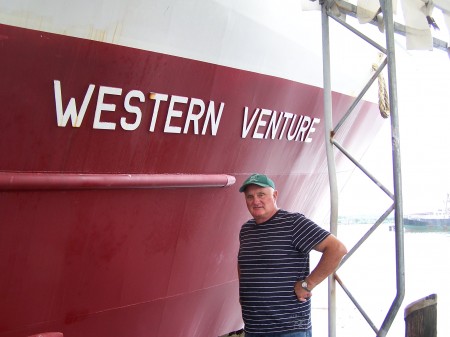
A Question that Demands a Better Response Than What Was Recieved. – The Free Press
This second writing for the Free Press finds me at a place that forces me to revisit my article for the First Edition.
things-are-lookin-pretty-good-for-the-predators-whats-a-poor-cod-fish-to-do-the-free-press
The New England Fishery Management Council began its three day meeting in Plymouth Ma on 9/25/2012.
As is typical of bureaucratic meetings, this one was spiked with some, at times, semi excitement, and threats.
The New England Fishery Management Council approved a motion to allow groundfishermen access to large areas off-limits to fishing.
Study: Fraud growing in scientific research papers
WASHINGTON — Fraud in scientific research, while still rare, is growing at a troubling pace, a new study finds. A review of retractions in medical and biological peer-reviewed journals finds the percentage of studies withdrawn because of fraud or suspected fraud has jumped substantially since the mid-1970s. In 1976, there were fewer than 10 fraud retractions for every 1 million studies published, compared with 96 retractions per million in 2007.
Socio Economic Studies and the Piss Poor Science of Fishery Mismanagement.
Listening to the NEFMC meeting over the past three days, I’ve noticed some blatant flaws of connectivity on a number of issues. Where to begin? Thats as confusing as the information was.![environmental-watchdog[1]](https://fisherynation.com/wp-content/uploads/2012/09/environmental-watchdog11-150x143.jpg)
I’m just going to ramble my way into it with something that has me scratching my thin haired head. The socio economic information issue. NOAA has decided that there must be a socio economic study, and they apparently decided the survey was important, but not so much important enough to include the fishermen. For clarity, I will be using that term for the guys that actually go to sea http://bore-head007.newsvine.com/_news/2012/09/28/14127887-socio-economic-studies-and-the-piss-poor-science-of-fishery-mismanagement
NEFMC Meeting – Plymouth, Ma Sept. 25 – 27, 2012 Audio Tapes
AUDIO: NEFMC’s Sept. 26 Meeting Reviews Assessments for Yellowtail, Scallops and Herring
Listen to the public’s comments regarding the SSC’s report on ABC recommendations for herring stocks for fishing years 2013 through 2015. Peter Mullen asks a very important question, and the answer should raise eyebrows. He kicks it off, and the ENGOs throw in their two cents. They keep saying, “they think”. Do they?
Listen to the public’s comments on the overview of SAW/SARC 54. This public comment period includes input from the Mayor of New Bedford, Massachusetts, Jon Mitchell.This is a great tape, and the common sense of Owen Rochford, Norpel can be found at 25:30 if you slide the button with your cursor.
Plenty of audio, plenty of examples of a broken management system, exacerbated by piss poor science, and special interest groups. Plenty of fun for the whole family.
New Bedford Mayor asks Council to Consider Economic Ramifications of Groundfish Cuts; Lauds SSC for Including 1,150mt Upper Range in Yellowtail ACL
New Bedford Mayor John Mitchell urged the NEFMC to “forestall or mitigate” upcoming cuts in the Annual Catch Limits (ACL) for the Northeast Multispecies Groundfish Fishery.
http://www.savingseafood.org/images//mitchell%20letter%20to%20nefmc%20sept.%2026%202012.pdf
The Ringer – A True Story of the National Marine Fisheries Service Observer Program
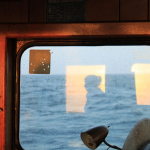 Origional post Sun Aug 21, 2011 by jj
Origional post Sun Aug 21, 2011 by jj
The Ringer A True Story of the National Marine Fisheries Service Observer Program
The National Marine Fishery Service observer program sends many recent graduates of marine biology programs out on fishing vessels to collect data for fisheries science and to observe fishing activity and how it affects the environment and wildlife. In stories about fishing you often hear of the efforts of sea captains and their brave crews and never a word about the observer who accepts and takes many of the same risks as anyone who signs on as a crew member in the world’s most dangerous job.
Call her M. as anonymity is a requirement of this story. She came aboard like every other observer with a stack of baskets and fish measuring stuff for her work during the voyage. She was in her early twenties. In a baggy sweatshirt pulled over a slender frame with hair pulled back in a pony tail she looked like just another fresh faced college kid ready to do her part for the cause of fish science. At first she kept to herself but since we weren’t going to take any fish on board the Osprey at that time of year it isn’t a very demanding job for an observer. I think this whole story happened because she got bored.
My crewmate C.D. is a cribbage player with a long history of wins over fellow crew members and captains. We had been having a series of very competitive games and while there was no clear victor I would give him a slight advantage over me in both number of wins and quality of play. He is very proud of his game and ability to play and brags on himself a little at times,,,,,,,,,,,Read More


































